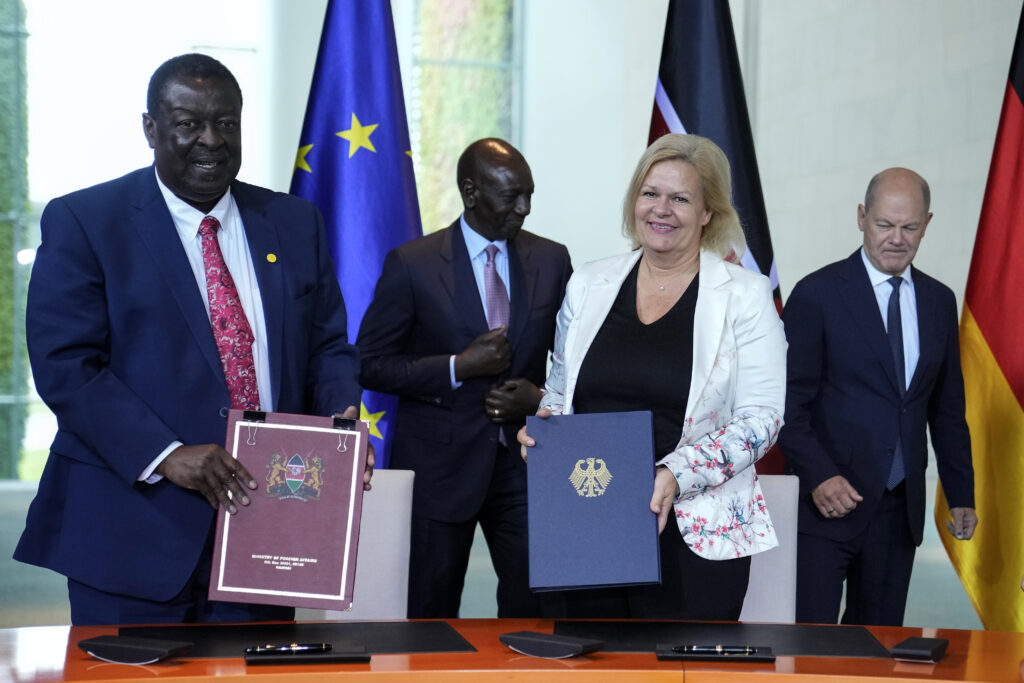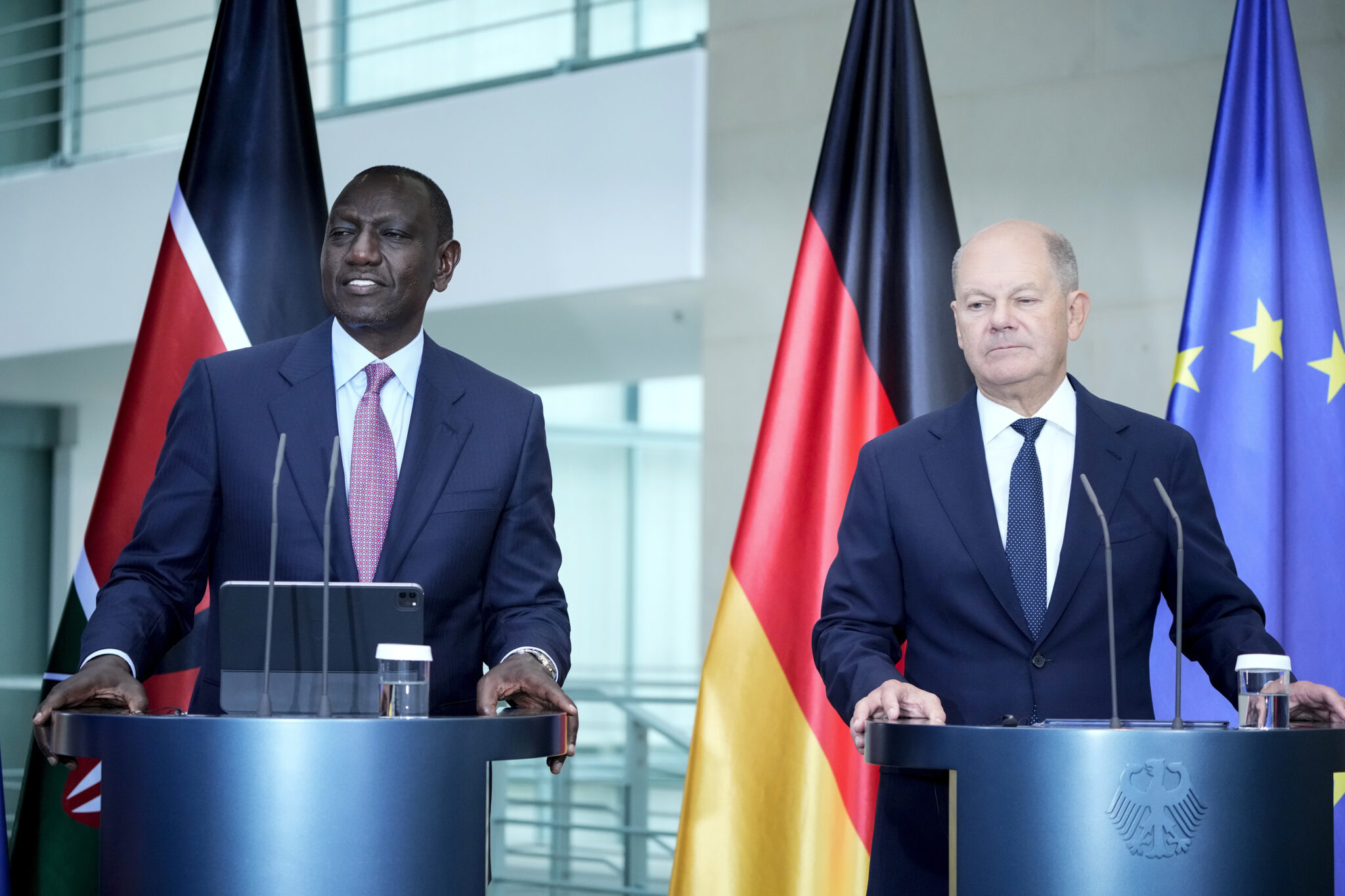The German media was abuzz throughout the weekend about the news that 250,000 Kenyans were headed to Germany to work as skilled or semi-skilled workers. With Brandenburg state elections a week away, and with immigration the number one topic as voters head to the polls, the news arguably could not have come at a worse time for the far-left government.
Now, there are panic denials coming from the government, with the interior ministry contradicting the claims. Kenyan President William Ruto was the one who first broke the news, telling Deutsche Welle that he had signed an agreement with Germany that would allow Germany to return illegal immigrants, and in exchange, Kenya would send skilled labor as migrants.

The primary issue for the far-left government is that the majority of Germans are opposed to further non-EU immigration, especially in the light of a wave of Islamic attacks, including Mannheim, Munich, and the festival of diversity in Solingen.
With the Alternative for Germany (AfD) fresh off huge electoral gains in Saxony and Thuringia, where it scored above 30 percent in each state, Brandenburg elections are a week away, with the ruling parties desperate to stave off another first-place finish from the AfD. Currently, the AfD leads the polls in the state by a significant margin. The SPD leader in that state, Hubert Dietmar Woidke, vows to resign if the AfD finishes on top.
The German interior ministry released a statement on X about the Kenyan agreement, stating: “This news is false. The migration agreement between Germany and Kenya does not contain any numbers or quotas of skilled workers from Kenya who could work in Germany. All applicants must meet the criteria of the Skilled Immigration Act.”
The original agreement did not put forth a specific number, with Chancellor Olaf Scholz simply stating it was a “win-win situation.” However, Ruto, in an interview with Deutsche Welle, shocked Germany with a figure of 250,000, which took to social media like a wave. Despite the denial, the news could further harm the government’s standing in the run-up to regional elections.
Since then, the figure of 250,000 has been deleted from the Deutsche Welle X channel, in what looks like an attempt at damage control. However, the figure is still available on their website.
The Kenyan government has not responded to the German government’s denial that 250,000 Kenyan migrants would be headed to Germany.
The other question remains what Kenya would get out of such agreement. If the workers are truly skilled, why would the Kenyan government give them up in exchange for rejected asylum applicants? In short, there are questions about the qualifications of the applicants. Kenya is rife with corruption, features incredible property, and its economy — while better than many other African countries — is still facing a crisis.
Currently, there are 15,000 Kenyans in Germany, and 818 are required to leave, according to the Federal Office for Migration and Refugees. In total, there are around 300,000 foreigners in Germany who are required to leave the country.






